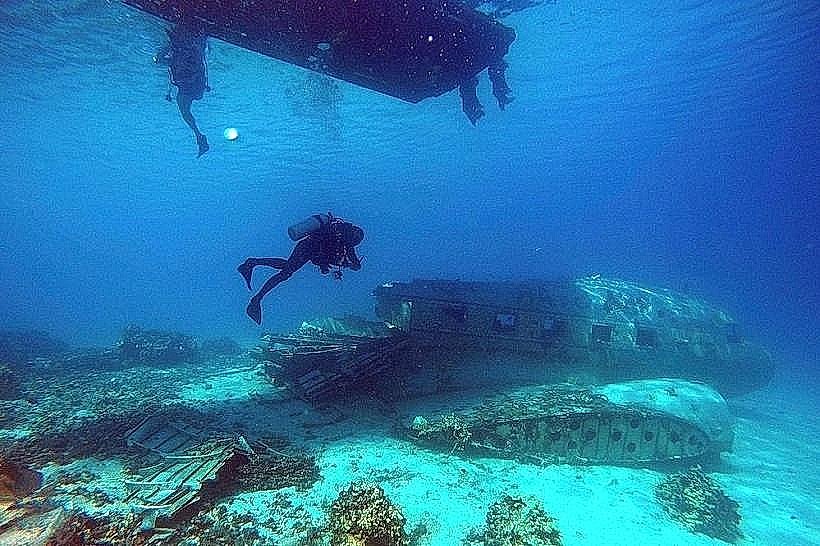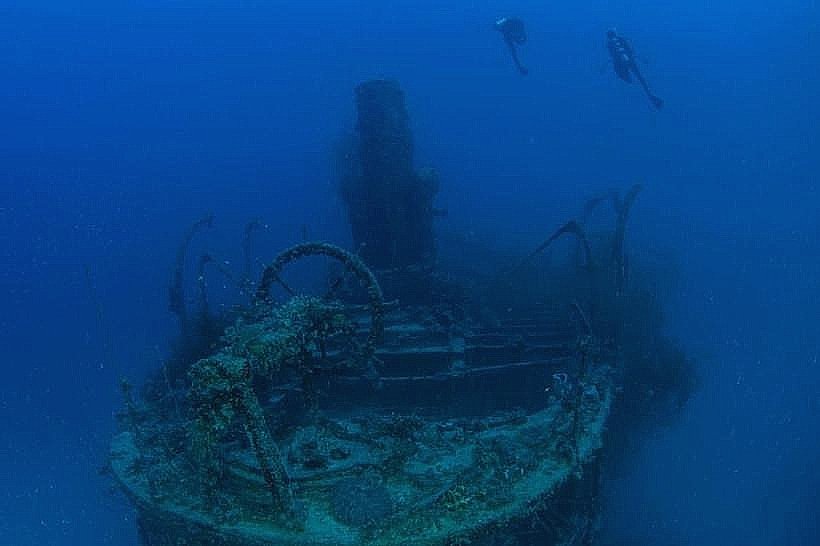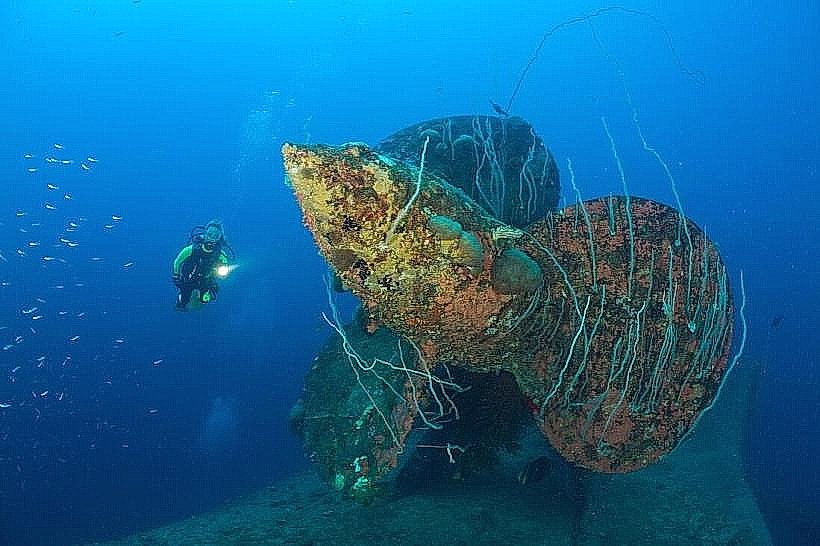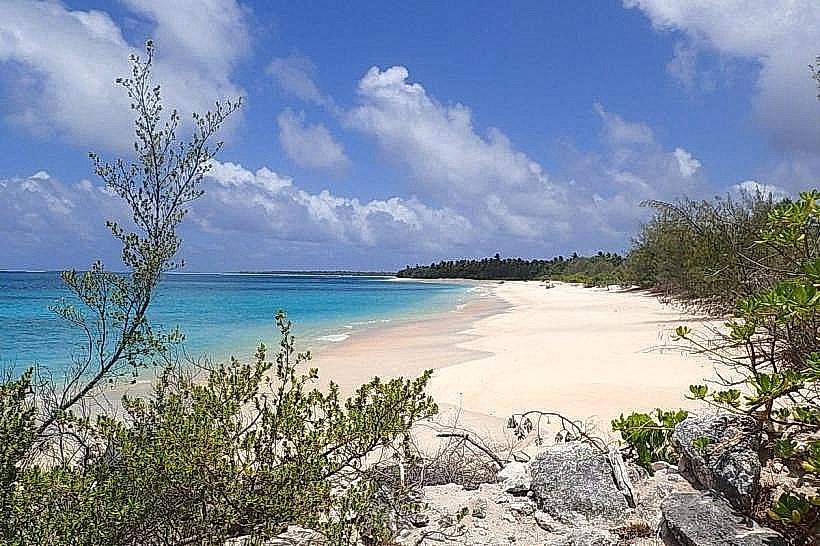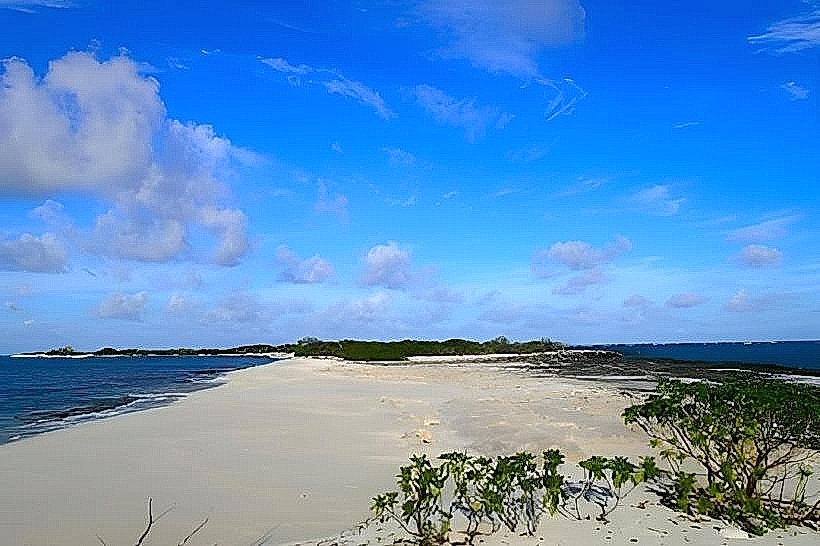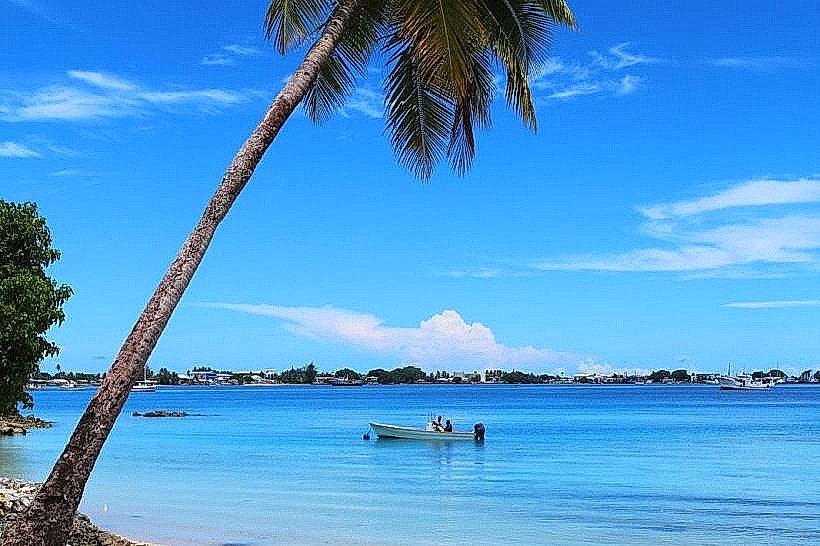Information
Landmark: Baker Nuclear Test Site MarkersCity: Bikini Atoll
Country: Marshall Islands
Continent: Australia
Baker Nuclear Test Site Markers, Bikini Atoll, Marshall Islands, Australia
Palazzo Fortuny is a museum and exhibition space located in the San Marco district of Venice, Italy.
Visual Characteristics
The palazzo is a Gothic-Venetian structure with a rectangular plan. Its facade is characterized by a series of pointed arches on the main floors and a prominent loggia on the second floor. The exterior is constructed from Istrian stone, exhibiting a pale, weathered appearance. The building stands four stories high, including the ground floor, mezzanine, and two main floors, topped by a crenellated parapet.
Location & Access Logistics
Palazzo Fortuny is situated at Campo San Beneto, 3790, in the San Marco sestiere. It is accessible by foot from Rialto Bridge (approximately 500 meters West) or St. Mark's Square (approximately 700 meters South). The nearest Vaporetto stop is San Tomà (Line 1 and Line 2), located approximately 200 meters North-West. No dedicated parking is available; visitors must use public parking facilities at Piazzale Roma or Tronchetto, then utilize Vaporetto services.
Historical & Ecological Origin
The building's origins date back to the 15th century, likely constructed between 1480 and 1500 for the Pesaro family. It underwent significant alterations in the 19th century. In the early 20th century, it was acquired by the artist Mariano Fortuny y Madrazo, who used it as his studio and residence. It was later bequeathed to the city of Venice and opened as a museum.
Key Highlights & Activities
Visitors can explore permanent collections of Fortuny's work, including textiles, lamps, and stage designs. The palazzo also hosts temporary exhibitions of contemporary art and design. Guided tours focusing on Fortuny's life and the building's history are available. Photography is permitted for personal use in designated areas.
Infrastructure & Amenities
Restrooms are available on-site. Limited seating is provided within exhibition spaces. Cell phone signal (4G/5G) is generally available within the palazzo. No food vendors are located within the palazzo; however, numerous cafes and restaurants are situated in the surrounding San Marco district.
Best Time to Visit
The best time of day for interior photography is during daylight hours when natural light illuminates the exhibition spaces. The months of April, May, September, and October offer pleasant weather for accessing the palazzo by foot or Vaporetto. Visiting during weekdays, particularly in the morning, can reduce crowd density.
Facts & Legends
Mariano Fortuny y Madrazo was a polymath, excelling not only as a painter and fashion designer but also as an inventor, holding patents for lighting systems and textile printing techniques. His studio within the palazzo was a hub of innovation.
Nearby Landmarks
- Rialto Bridge (0.5km West)
- Basilica di San Marco (0.7km South)
- Doge's Palace (0.8km South-East)
- Scuola Grande di San Rocco (0.4km North-West)
- Ca' Pesaro (International Gallery of Modern Art) (0.3km North-West)

